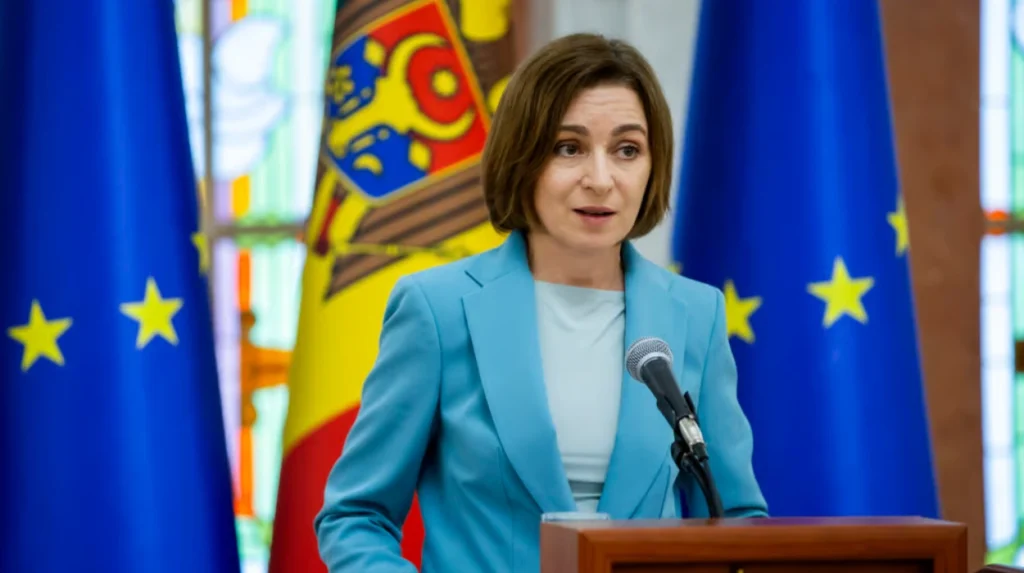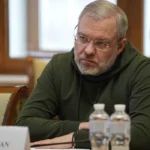As Moldova approaches its crucial parliamentary elections on September 28, alarm bells have been raised regarding Russia’s escalating attempts to interfere not only within Moldova but also targeting voters across the European Union. These efforts involve a broad spectrum of influence operations, including disinformation campaigns, cyberattacks, financial manipulations, and psychological pressure. The goal is clear: to subvert democratic processes and tilt the outcome in favor of Moscow-backed actors.
Moldovan Leadership Sounds the Alarm
Moldovan President Maia Sandu has been outspoken about the threats posed by Russia in the run-up to the elections. At a recent press conference, she emphasized,
“The Russian Federation wants to control the Republic of Moldova from autumn onwards.”
She described the campaign as a
“direct threat to our state security, the country’s sovereignty, and the European future of Moldova.”
Sandu highlighted how Russia is intensifying its support for opposition forces within Moldova, funding political agendas aligned with Kremlin interests. The efforts, she noted, were centrally coordinated and linked to networks associated with the fugitive oligarch Ilan Shor.
National Security Adviser Stanislav Secrieru echoed this assessment, emphasizing that Russia’s campaign increasingly targets the Moldovan diaspora in the EU, where approximately 250,000 Moldovans live and vote. He explained,
“Russia and its proxies are now actively focusing their efforts on the Moldovan diaspora. The campaign is designed to demobilize diaspora voters—encouraging them to stay home—and to manipulate those who do vote into supporting a fake pro-European force.”
Secrieru also revealed Moscow’s use of a network called Matryoshka that fabricates credible-seeming European media outlets to disseminate misinformation aimed at confusing and dividing voters.
Complex and Comprehensive Interference Strategy
Moldovan officials have uncovered multiple layers in Russia’s interference strategy. This strategy combines illegal financial injections estimated at tens of millions of euros, often routed through cryptocurrencies, with the widespread dissemination of disinformation and fake news. The disinformation apparatus includes the production of deepfake videos and audio that impersonate Moldovan political figures to sow confusion and distort public perception.
Alongside media manipulation, cyberattacks aim at undermining election infrastructure and spreading distrust. Russia-backed groups are also staging protests and demonstrations, sometimes paid or orchestrated, to fabricate an illusion of widespread dissent. Religious institutions and clergy sympathetic to Kremlin narratives are reportedly mobilized to influence voting behavior. Additionally, Moldova’s electoral authorities warn that hoax bomb threats at polling stations and attempts to intimidate voters could dampen turnout, particularly among diaspora communities.
These efforts are tied into an even broader web of tactics designed to disrupt the vote, including encouraging vote-buying schemes in some areas and attempts to disrupt voter registration and polling processes. The overarching aim is to fracture Moldova’s pro-European trajectory and bolster pro-Russian political forces.
The Critical Role of the Moldovan Diaspora
The Moldovan diaspora plays an outsized role in the country’s elections. With a population of around a quarter of a million eligible voters residing mainly across EU countries, the diaspora has proven decisive in past electoral cycles. In the 2020 presidential elections, for instance, the overwhelming support from Moldovans abroad was crucial in Maia Sandu’s victory, despite Russia’s attempts to influence the vote through disinformation and intimidation.
The diaspora’s importance was further underscored in Moldova’s recent referendum on EU integration, where the external vote tipped scales sharply in favor of closer ties with Brussels. Moscow’s intensified campaign focusing on diaspora voters underlines its recognition of their pivotal electoral influence.
Defending Moldova’s European Path
For Moldova, the September elections are a critical junction with long-term consequences for its bid to join the European Union. The ruling party, led by Maia Sandu, aims to retain a majority in parliament to continue reforms and secure EU candidate status. Russian efforts to inject chaos and support anti-European opposition parties directly challenge this objective.
The European Union has responded with heightened concern and increased support for Moldova’s democratic process. The EU’s disinformation monitoring bodies characterize the Kremlin’s tactics as part of a coordinated operation designed to distort online discourse and erode trust in legitimate information. At the same time, European governments are being urged to assist Moldova not only in countering direct election interference but also in building resilience among its diaspora communities.
Political and Security Responses in Europe
European officials are increasingly attuned to the risks these interference campaigns pose not only to Moldova but to the EU’s democratic integrity. Moldovan authorities advocate for enhanced intelligence sharing and joint monitoring mechanisms ahead of election day. They emphasize the need for clear protocols addressing potential cyber or physical threats and for public education campaigns to raise awareness among diaspora voters about disinformation risks.
Stanislav Secrieru stressed,
“European governments must enhance monitoring efforts and proactively counter any attempts to sway the vote before, during, and after election day.”
He underscored that election workers abroad need better training to detect and respond to intimidation or misinformation tactics, and that rapid response teams must be ready to address hoax bomb threats or cyber disruptions.
Anticipating Election Day Challenges
Moldova’s electoral officials and security services anticipate a range of efforts designed to undermine the vote and intimidate Moldovan communities abroad. Fake bomb threats to polling stations have already been detected as a plausible tactic, aimed at discouraging voter participation. Additionally, orchestrated protests, often amplified by pro-Kremlin fake news outlets, may aim to portray the diaspora as hostile or divided, further complicating voter turnout.
The use of deepfake technology raises concerns about the intentional circulation of manipulated audio or video material targeting key candidates close to voting day. Alongside this, coordinated social media campaigns seek to spread last-minute false narratives rapidly, complicating efforts to debunk misinformation in time.
Moldova’s Struggle Reflects a Broader Battle
Moldova remains a frontline state in the broader contest between Western democratic institutions and Russian geopolitical ambitions. How this small but strategically located country defends its elections and democratic norms will be closely watched as a test of Europe’s ability to protect its values against hybrid warfare tactics.
President Maia Sandu remains resolute in the face of these challenges. She reminded her people,
“This is a critical test for our democracy and our European path. We must stay vigilant, work together, and ensure the will of Moldovan voters is protected, whether they are at home or abroad.”
The upcoming elections will not only shape Moldova’s internal future but will also reverberate across Europe as a signal of the resilience of democratic processes against foreign subversion attempts.







